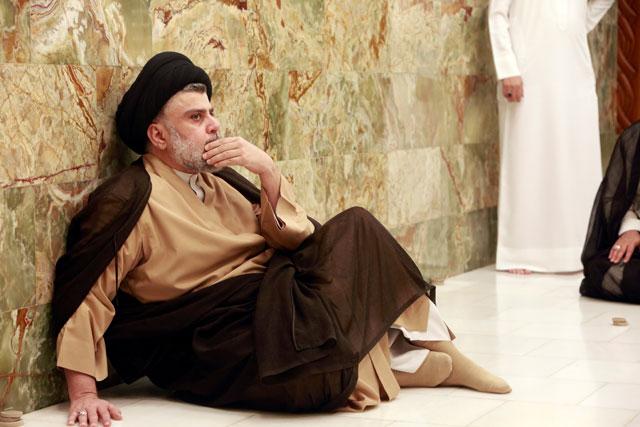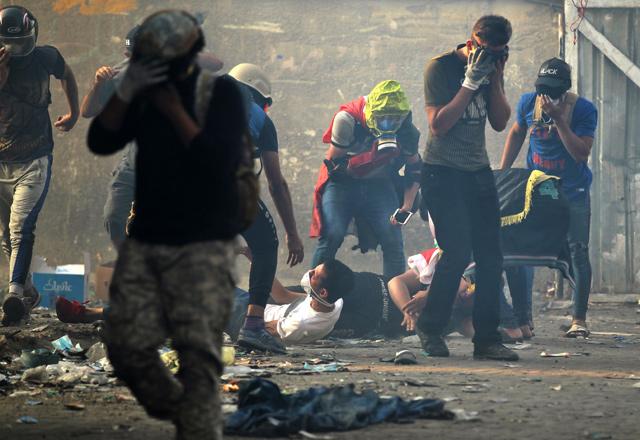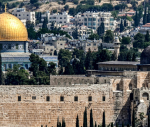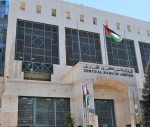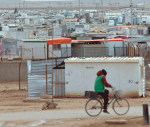You are here
EU, UN hope for 'credible' Iraq polls
By AFP - Sep 07,2021 - Last updated at Sep 07,2021
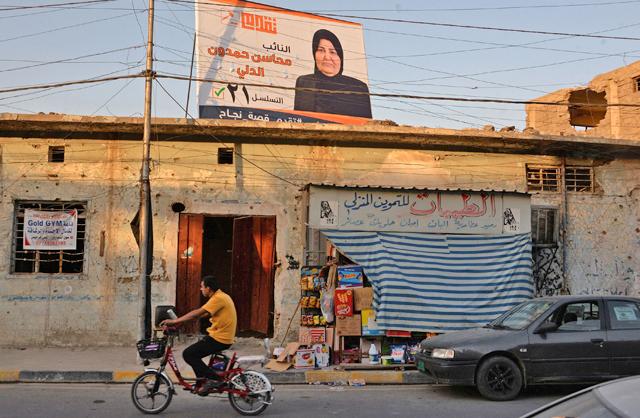
An electoral banner for a candidate is seen on a rooftop in Iraq's second city of Mosul on Sunday, ahead of the upcoming parliamentary elections (AFP photo)
BAGHDAD — The European Union and United Nations will deploy observers to monitor Iraq's parliamentary election next month, saying Tuesday they hope voting will not be tainted by fraud and abstention.
"Our purpose is to do whatever we can in order that the electoral process be as good as possible," EU foreign policy chief Josep Borrell told a news conference in Baghdad.
He said the EU observer mission for the October 10 election would be in Iraq a month before polling day and would stay for another month afterwards.
The UN's top representative in Iraq, Jeanine Hennis-Plasschaert, told a separate news conference the world body would also deploy a large monitoring team.
"In fact this is one of the UN's largest electoral assistance projects worldwide with five times as many UN personnel as in 2018," she said.
Hennis-Plasschaert urged Iraqis not to boycott the vote, which she hoped would be "credible", and called on "political forces and candidates to collectively refrain from any attempt to force or distort election resources".
Past elections in Iraq have been marred by violence and vote-buying.
In the most recent legislative election in 2018, the turnout was 44.52 per cent, an official figure that many believe was inflated.
Calls to boycott the vote have increased as the election draws closer, especially among young people who accuse political parties in Iraq of covering up and even encouraging political violence.
Borrell said that everyone in the country demands elections, “but when we organise elections, the people say that elections are not good”.
“Our focus is try to help the electoral process be as good as possible,” he said.
Iraqi political scientist Saleh Al Alaoui told AFP to expect a low turnout — “not exceeding 20 per cent”.
He said this would be “a consequence” of the protests that swept Iraq in October 2019 against corruption, foreign interference, poor public services and the stranglehold the main political parties have on the country.
An early general election was one of the promises made by Prime Minister Mustafa Al Kadhemi to try to meet the demands of the demonstrators.
A new electoral law also came into force last year, its aim being to break the monopoly held by blocs of parties that share power, and promote independent candidates instead.
Related Articles
NAJAF, Iraq — Iraq's top Shiite cleric on Sunday endorsed early parliamentary elections set for June 2021, following his first meeting in ne
BAGHDAD — Nationalist cleric Moqtada Al Sadr, a long-time adversary of the United States, led in Iraq’s parliamentary election with more tha
BAGHDAD — Iraqi protesters shut down state institutions Tuesday as the United Nations stepped up pressure on the government to enact a raft


